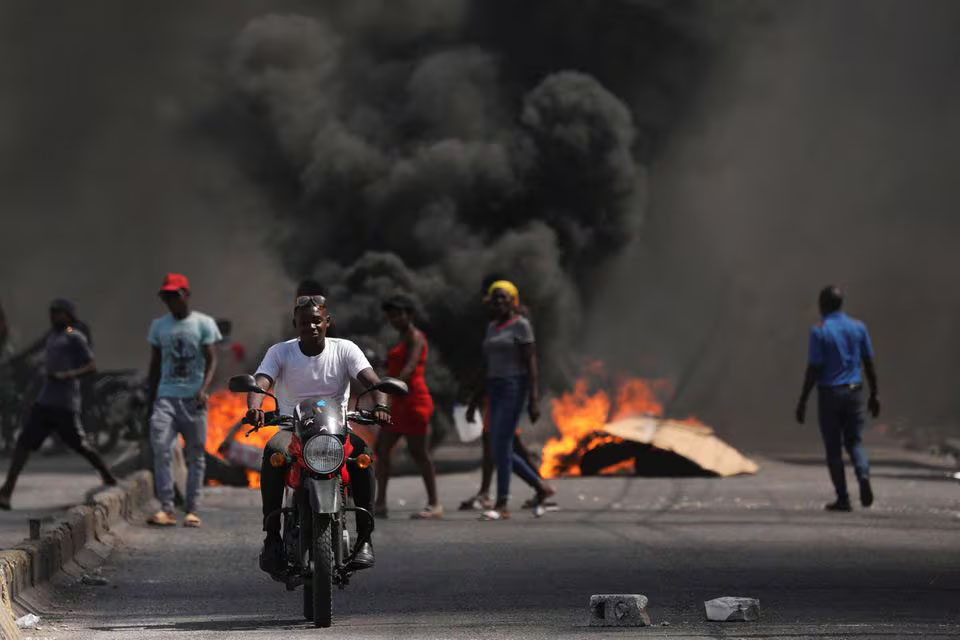PORT-AU-PRINCE (Reuters) – International connectivity to Haiti was disrupted on Sunday following violent clashes in the capital that have damaged communications and led to a prison break at the main penitentiary as a major gang leader seeks to oust Prime Minister Ariel Henry.
The chairman of Digicel, one of two major telecoms pro-viders to the Caribbean country, said that lines had been affected following days of street violence in parts of the capital.
Field teams on Sunday were “working on gaining safe passage to allow repairs,” Digicel Chairman Maarten Boute said in a post on X, adding that local telephone calls were still possible.
Heavy gunfire has caused panic in recent days after calls by gang leader Jimmy Cherizier, a former police officer, for criminal groups to unite and overthrow Henry. Cherizier heads an alliance of gangs and faces sanctions from the U.N. and the United States.
Armed groups on Saturday night attacked the country’s largest prison, defying Haitian police forces who had called for help. Reuters visited the National Penitentiary on Sun-day where there were no signs of police officers and the main prison doors remained open.
“I’m the only one left in my cell,” one unidentified inmate told Reuters. “We were asleep when we heard the sound of bullets. The cell barriers are broken,” he said.
It was unclear how many inmates were on the run. Sources close to the institution said it was likely an “overwhelming” majority. The penitentiary, built to hold 700 prisoners, held 3,687 as of February last year, according to rights group RNDDH.
One voluntary prison worker on Sunday said that 99 prisoners had opted to remain in their cells for fear of being killed in the crossfire. These included several retired Colombian soldiers who were jailed for their alleged involvement in the assassination of President Jovenel Moïse.
The bodies of three inmates who had attempted to flee lay dead in the courtyard of the jail complex on Sunday.
The government of Haiti, the poorest country in the Americas, did not comment on the situation.
The exact whereabouts of the prime minister remained unclear on Sunday. Henry had been due to return from a visit to Kenya, where he signed a security deal to tackle gang violence.
Cherizier this week warned locals to keep children from going to school to “avoid collateral damages” as violence surged in the prime minister’s absence.
Nearly 15,000 people have been forced to leave their homes in recent days, with 10 sites hosting internally displaced people emptied over the weekend, according to the U.N. International Organization for Migration (IOM).
Prime Minister Henry, who came to power in 2021 after the assassination of the country’s last president, Moïse, had previously pledged to step down by early February. He later said security must first be re-established in order to ensure free and fair elections.






